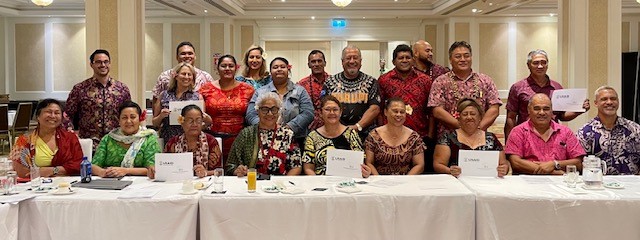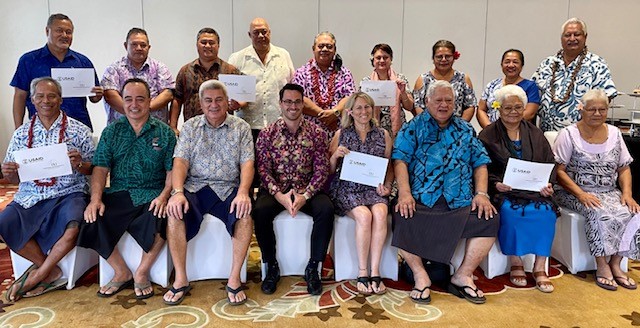
The International Republican Institute (IRI) hosted its first political party development trainings in the Pacific Islands, in the country of Samoa. The country had been controlled by one political party since the mid-80s, the Human Rights Protection Party (HRPP) that was led by Prime Minister Tuila’epa Sa’ilele Malielegaoi for decades. However, ahead of the 2021 elections, a group of members of Parliament (MPs) broke with their government over controversial legislation and formed the Fa’atuatua i le Atua Samoa ua Tasi (FAST) Party that went on to win a majority of seats to take control of the government.

Political parties in the region are not common, so IRI capitalized on the historic win that not only included Samoa electing a new prime minister for the first time in 20 years but also electing its first female prime minister, Fiamē Naomi Mata’afa. To ensure both parties were given the tools to succeed in a multi-party democracy, IRI’s trainings were broken up over two sessions. The first was on building internal party democracy to ensure a healthy change in leadership and more inclusion, while the second focused on external communications. In that training, IRI highlighted the importance of separating the party from the caucus – a practice neither party current utilizes.
Fifty-four MPs including Fiamē and Tuila’epa attended from both FAST and HRPP, along with political party supporters, and both parties were moved by the trainings to create inclusive youth and women’s political party wings. Samoan culture places a very high value in family and chiefly organizations, and that has resulted in many feeling as though they are instructed on which party and candidate to vote for. This practice contributes to the long-term peace and community Samoa boasts but has also resulted in MPs remaining in office for extended periods of time and the exclusion of women and youth in government. However, creating strong, issue-based political parties will be essential to ensuring an inclusive democracy in Samoa. As one FAST party member remarked at the training, “In the past, we voted for the person, but now – we vote for the policy!,” he said.
Top